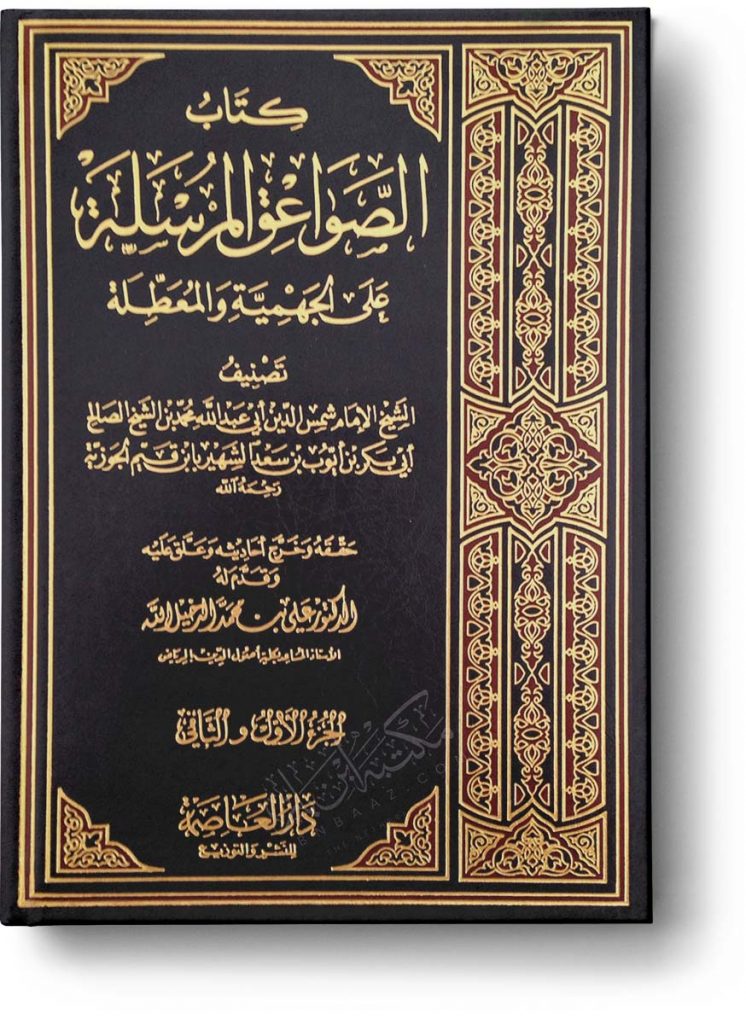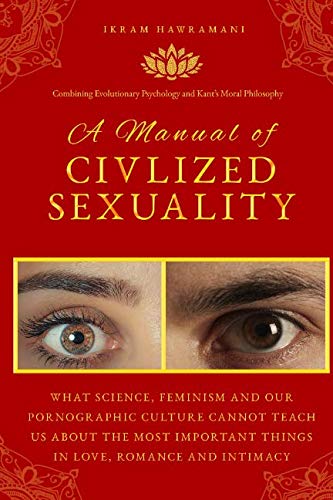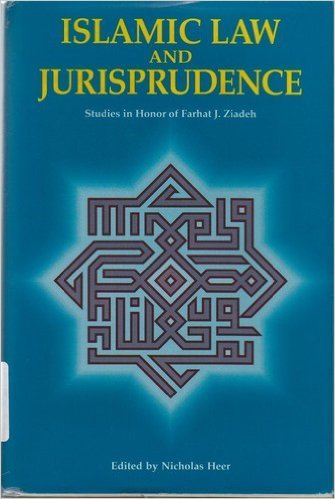It is common in religious thought to dismiss atheists as obstinate wrongdoers who reject religion out of a combination of irrationality, egotism and their preference for their base desires. But if we appreciate the great honor and dignity that God bestowed on all of humanity (the angels bowed down to us), we should perhaps be more willing to explore the atheist’s subjective experience. Another reason to respect the subjective experience of atheists is the great dedication to morality and uprightness that some of them display.
The first book by an atheist that I read was Terry Pratchett’s Small Gods (published 1992). As if by some Discworld magic, the book was being sold by a street bookseller in my Kurdish city of Sulaymaniyyah, Iraq at a time when it was very difficult for me to find English books to buy and read since they were so rare. Since then I have gone on to read 40 novels by him, some of them many times.
Pratchett’s Small God is an all-out attack against Christianity that shows some aspects of Pratchett at their best; his humor and his willingness to admit the good even in the religious. But he also displays a great deal of ignorance about religion like in all his other novels. Since his view of the universe is entirely materialistic, he is unwilling to explore the foundation of religious experience: the possibility of the existence of a soul that instinctively recognizes its creator. By discarding this essential aspect of religion, religion becomes just a silly experiment involving good and bad humans. Good humans like the Prophet Brutha in Small Gods can wield religion to create goodness in the world, while bad humans like Vorbis in the same novel use it to gain power and control.
Terry Pratchett’s view of history is perhaps best summed up in footnote 19 of his Last Continent:
In fact it's the view of the more thoughtful historians, particularly those who have spent time in the same bar as the theoretical physicists, that the entirety of human history can be considered as a sort of blooper reel. All those wars, all those famines caused by malign stupidity, all that determined, mindless repetition of the same old errors, are in the great cosmic scheme of things only equivalent to Mr Spock's ears falling off.
It is one of the greatest failings of Pratchett’s philosophy that he never explores what it is that makes humans morally special. As his career progressed as a writer, he became more and more of a moralist, frequently repeating his teaching that “evil starts when people are treated like things,” which is just a rephrasing of Kant’s categorical imperative to treat humans as ends in themselves rather than as means (things to be used).
But why is it evil to treat humans like things? Shouldn’t a wise person make it one of the goals of their lives to discover this? Pratchett seems to just take it for granted.
In this essay I wish to do for atheists what they are rarely willing to do for the religious: to study their subjective experience in full seriousness. But as a religious person who has studied the questions of morality, I cannot study them on the materialist terms they dictate, since that will get us nowhere. The question of the rightness or wrongness of atheism can only be answered by studying it from a perspective that enjoys a vantage that is outside the box of the universe.
The Covenant of Alast
The Quran tells us:
And when Your Lord summoned the descendants of Adam, and made them testify about themselves. “Am I not your Lord?” They said, “Yes, we testify.” Thus you cannot say on the Day of Resurrection, “We were unaware of this.”
The Quran, verse 7:172.
According to the Quran, all of humanity have already testified to God’s Lordship, and by extension, His existence. By taking this Covenant as our starting point, the justification for God’s perspective on atheism becomes clear; His extreme dislike for it and His view that it is an unjustified choice within our universe.
Humans are not blank slates that go on to either choose theism or atheism based on their upbringing and personal reflection. Humans start out as theists then the knowledge is embedded within their souls while being absent from their brain’s memory.
Imagine our universe as a sphere. The soul is not a part of it, it is outside the universe and looks into it. As Kant and Pratchett tell us, the soul is not an object within our universe and the greatest wrongs of morality start when we treat souls as objects. Souls are subjects, they are like eyes that look into the universe from the outside.
The brain is an object with its own memory and knowledge. The soul is a subject with its own memory and knowledge. The human experience involves a unity of these two different realities.
The soul has knowledge of the Covenant while the brain does not. The point of religion is to bring that knowledge into the brain’s awareness, uniting both body and soul in the Covenant.
Kufr
The Arabic term kufr is used to refer to what atheists do when they reject God. Kufr has a dual meaning that makes it impossible to translate into a simple word in English. It means “to cover”, thus a farmer performs a physical act of kufr when he covers a seed with soil. It also means “to show ingratitude”, thus the Prophet Muhammad PBUH was accused of kufr toward his pagan society when he rejected what they considered holy; they had given him honor and social status, but he displayed kufr in return for these favors.
Speaking from the perspective of the Covenant of Alast, kufr toward God involves two actions: covering and repressing the knowledge of the soul about the Covenant, and displaying ingratitude toward God for His favors upon us, the most important favor being the fact of existing. For every human that exists, an infinite number of humans can be imagined that do not exist.
The very fact of being a self-aware subject looking into this universe is an incredible blessing and favor that requires gratitude.
The Quranic phenomenology of kufr
According to the Quran, one of the essential distinctive features of atheism is hesitation and uncertainty.
Those who disbelieve will continue to be hesitant about it, until the Hour comes upon them suddenly, or there comes to them the torment of a desolate Day.
The Quran, verse 22:55.
Whoever associates anything with God—it is as though he has fallen from the sky, and is snatched by the birds, or is swept away by the wind to a distant abyss.
The Quran, verse 22:31.
Since kufr involves the brain rejecting what the soul knows, it is literally impossible to achieve complete contentment with atheism. The heart cannot settle on it; there is constant tension between the soul and the brain.
The way out of this tension is to build up a rational framework in the brain that can overpower the soul’s knowledge.
Those who took their religion lightly, and in jest, and whom the worldly life deceived. Today We will ignore them, as they ignored the meeting on this Day of theirs, and they used to deny Our revelations.
The Quran, verse 7:51.
The Quran calls this rational framework “being deceived by the worldly life”. In involves taking religion lightly and in jest, and seeking arguments to fortify one’s defenses against their soul’s knowledge. Terry Pratchett and Richard Dawkins are great examples of people who do their best to use both strategies. They cannot help but constantly seek new ways of mocking religion, while also constantly seeking consolation in extra-religious constructs, the most important today being evolutionary science.
This explains a common atheist phenomenon: disgust when religion is mentioned, and celebration when yet another argument is found in support of their reasons for rejecting religion:
When God alone is mentioned, the hearts of those who do not believe in the Hereafter shrink with resentment. But when those other than Him are mentioned, they become filled with joy.
The Quran, verse 39:45.
Religion is an annoyance that always threatens to bring back to sense of tension between the brain and the soul. It is a nuisance that is best dealt with by disgust: the atheist must never study religion too deeply in case this increases their existential discomfort. So they should rather only study religion through the works of atheist preachers like Dawkins who can present religion to them safely; in a way that causes no discomfort but only reinforces the person’s ability to overpower the soul. Dedicated atheists therefore always seek “safe spaces”; atheist echo chambers that can filter out all that is discomfort-inducing about religious thought and philosophy. All that is actually meaningful about religion must be ignored in favor of consoling mockeries about it and consoling scientific theories about how God’s existence is unlikely.
The most difficult thing in life for an atheist is taking religion seriously; to study it as if it is true and finding out where that takes them. This is a heart-wrenching experience because it intensifies the pain of the tension between the brain and soul. It is much better to build an idea of religion made up only of negative facts about it. An atheist has to build a special neural network in their brains that can reassure them that religion is stupid dangerous.
This “atheist theory of religion” is constantly maintained and fortified through the consoling works of atheist preachers. An image of religion is formed that is entirely made up of slivers of historical knowledge that present religion in a negative light: the Inquisition, jihad, terrorism, the abuse of women, the suffering of freethinkers in past ages or modern Islamic societies, the burning of witches, the Crusades, the European wars of religion. This carefully sculpted religious edifice serves as a reference point whenever the atheist is in doubt. Whenever the possibility of God’s existence comes to mind, a cinematic reel starts in the brain that shows images of inquisition, crusade and jihad.
The sin of jaḥd
In fact, it is clear signs in the hearts of those given knowledge. No one disacknowledges Our signs except the wrongdoers.
The Quran, verse 29:49.
The Quran calls the process of finding arguments against God jaḥd (“denial”, “disacknowledgment”). This is not a morally neutral action; it is wrong and brings guilt on the person who does it. Denial of God always involves lying:
Who does greater wrong than he who fabricates lies about God? These will be presented before their Lord, and the witnesses will say, “These are they who lied about their Lord.” Indeed, the curse of God is upon the wrongdoers.
Those who hinder others from the path of God, and seek to make it crooked; and regarding the Hereafter, they are in denial.
The Quran, verses 11:18-19.
Atheism therefore involves dishonesty. The soul knows something but uses the brain to express its opposite. Atheism also involves scheming:
In fact, the scheming of those who disbelieve is made to appear good to them, and they are averted from the path. Whomever God misguides has no guide.
From the Quran, verse 13:33.
Divine rights and human arrogance
Not one of their Lord’s signs comes to them, but they turn away from it.
They denied the truth when it has come to them; but soon will reach them the news of what they used to ridicule.
The Quran, verses 6:4-5.
From the Quran’s perspective, one of the laws of morality within our universe is to admit the truth of the “signs” (revelations and other pointers) of God. The Quran says the “truth” has come to them but they ridiculed it, and the news of what they ridicule will soon come to them.
This is a very important point for understanding the Quranic view of atheism. The Quran’s view is that within our universe, there is a moral law that requires humans to admit to God’s truth. By the mere fact of existing in this universe, this law applies to us and makes demands on us.
The Quran’s view is that there can be no truly honorable, just and moral position against God.
Those who reject Our revelations and are too arrogant to uphold them—the doors of Heaven will not be opened for them, nor will they enter Paradise, until the camel passes through the eye of the needle. Thus We repay the guilty. (The Quran, verse 7:40)
And they said, “No matter what sign you bring us, to bewitch us with, we will not believe in you.” So We let loose upon them the flood, and the locusts, and the lice, and the frogs, and blood—all explicit signs—but they were too arrogant. They were a sinful people. (The Quran, verses 7:132-133)
Those who do not expect to meet Us say, “If only the angels were sent down to us, or we could see our Lord.” They have grown arrogant within themselves, and have become excessively defiant. On the Day when they see the angels—there will be no good news for sinners on that Day; and they will say, “A protective refuge.” (The Quran, verses 25:21-22)
Rejecting God’s signs is not a rational position; it is an emotional one. It always involves arrogance. So when humans demand hard evidence for God’s existence, God does not say they are making a rational demand. Rather than answering their demand, God (1) calls them arrogant and (2) promises them that those rational proofs will only be given them when they will no longer be of any use to them.
This goes to the essence of the argument between atheists and God. Atheists demand hard evidence, God says they are arrogant to make such a demand. There is no dialog possible between the two positions: atheists claim to be making a rational demand, God says they are making an emotional one. Atheists believe they have a right to hard evidence, God says they have no such right and that demanding such a right can only be due to arrogance.
It is God’s view that He deserves to be believed and worshiped without hard evidence. It is the atheist view that God does not deserve that. God’s view is that His “signs”, the soft evidence of revelation and the evidence of design in our universe are sufficient to prove beyond doubt to a human that He exists and deserves to be worshiped. The atheists, however, “harden their hearts” to this evidence and use the emotion of arrogance to prevent their souls from seeing this evidence and giving it the respect it deserves.
To put it another way, God, through His creation of the universe and His interventions (His revelations), has created a system that makes it morally compulsory on all humans to believe in Him and follow His wishes. An atheist, by breaking this moral law, deserves eternal punishment for being so arrogant as to believe that they are above this law.
The atheist’s crime is therefore to believe and act in a way that expresses their view that they are above the cosmic law instituted by God in this universe.
God gives no weight to their rational criticisms of religion; it can only come through arrogance because He knows that the system He has created guides millions to believing in Him and worshiping Him everyday.
As for those who dispute about God after His call has been answered [by others], their argument is null and void with their Lord; and upon them falls wrath; and a grievous torment awaits them.
The Quran, verse 42:16.
The atheist, therefore, claims that their rational experience makes them disbelieve in God. God’s view is that they are lying. There can be no such thing as rational experience making one disbelieve in God. It can only be emotional experience that leads to disbelief; the emotional experience of arrogance. And this arrogance, in God’s view, deserves an answer.
The wrath of God
When those who disbelieve see you, they treat you only with ridicule: “Is this the one who mentions your gods?” And they reject the mention of the Merciful.
The human being was created of haste. I will show you My signs, so do not seek to rush Me.
And they say, “When will this promise come true, if you are truthful?”
If those who disbelieve only knew, when they cannot keep the fire off their faces and off their backs, and they will not be helped.
The Quran, verses 21:36-39.
It can be difficult even for a religious person to justify why God expresses so much anger against atheism. If a human honestly seeks the truth and concludes that God is unlikely to exist, why should this be treated with extreme anger rather than neutrality by God?
The reason is that atheism can never be an honest, neutral choice. It involves the action of a soul that feels God’s presence at all times but that chooses to build a rational framework to justify why it should not submit to God and then uses the emotion of arrogance to uphold this seemingly rational framework.
The soul of the atheist is like Satan who was in the presence of God, knew God’s power and lordship, yet chose knowingly and intentionally to disobey Him and condemn himself to eternal damnation.
God therefore appear to challenge the human soul: You know I exist, but you have the power to justify to yourself disbelief in Me for a while. So what will you do?
God does not merely let humans rely on their soul’s knowledge of Him. He goes the extra step of convincing the human brain of His existence:
We will show them Our signs on the horizons, and in their very souls, until it becomes clear to them that it is the truth. Is it not sufficient that your Lord is witness over everything?
The Quran, verse 41:53.
When knowledge of God’s lordship are united in a human’s brain and soul, the human finds himself or herself fully in the position of Satan; standing before God while having the power to obey or disobey Him. They also know that by disobeying Him they are asking for a ticket to Hell. So what will they do?
Life is not a simple matter of a brain seeking to know itself and its relationship with the universe–a blank slate that is slowly formed into a theist or atheist. It is something much more serious. It is a matter of standing before an infinitely powerful God, in full awareness, while having the choice to disobey Him.
For a soul, therefore, disobeying Him is not an innocent mistake, it is a crime against a cosmic law. God has empowered each soul with His own power of free will. He has raised us to a position of equality with Him in the matter of choice. And this elevation of our status brings us face-to-face with a terrifying reality. Our choices are not simple and innocent choices; they are the choices of a minister who stands before the King. Denying His power and greatness means knowingly choosing to clash with this terrifying power. God, being infinitely great and worthy of worship and submission, accepts nothing short of infinite suffering as punishment for the soul that dares to knowingly stand up to Him.
We may wish for a simpler and nicer universe. But whether we like it or not, we find ourselves stuck in a terrible game where the stakes are infinitely high.
God is utterly kind and merciful toward those humans who do not abuse their freedom in this game and who do not turn their backs on the knowledge that they have deep within their souls. And as for those who knowingly disobey God, God treats this as a challenge to His greatness and power. When you challenge the Infinite to do what He can to you, what do you expect in return? What higher power, what morality, is there to justify you?
Satan’s role
We said to the angels, “Bow down to Adam.” So they bowed down, except for Satan. He was of the jinn, and he defied the command of his Lord. Will you take him and his offspring as lords instead of Me, when they are an enemy to you? Evil is the exchange for the wrongdoers.
The Quran, verse 18:50.
It is easy to ignore Satan role in our world since as religious people we tend to focus on God. But Satan is an active presence in our lives, and he may explain some of the behavior we see among atheists.
When We said to the angels, “Bow down before Adam,” they bowed down, except for Satan. He said, “Shall I bow down before someone You created from mud?”
He said, “Do You see this one whom You have honored more than me? If You reprieve me until the Day of Resurrection, I will bring his descendants under my sway, except for a few.”
He said, “Begone! Whoever of them follows you—Hell is your reward, an ample reward.”
“And entice whomever of them you can with your voice, and rally against them your cavalry and your infantry, and share with them in wealth and children, and make promises to them.” But Satan promises them nothing but delusion.
“As for My devotees, you have no authority over them.” Your Lord is an adequate Guardian.
The Quran, verses 17:61-65.
Satan may be called the king of the atheists. By actively rejecting God, an atheist cannot help but passively fall under the sway of Satan. When God is taken out of the picture, what is left is Satan. Satan is like a natural force that inspires and reaffirms the atheist mindset. An atheist, after rejecting God, can open their heart to the universe and seek spiritual satisfaction and actually get something back; a religious alternative to religion that continually receives inspiration from an active spiritual presence in our universe.
An atheist can feel that what they are doing is right and good and even spiritual. There is beauty in our universe that inspires the soul. But the atheist, rather than using this as a way of connecting with God, uses it as a way of connecting with Satan. Satan’s promises become a spiritual religion: the universe has no creator; we will cease existing after death; but the universe is beautiful and we are self-aware; so our task is to find beauty and meaning in a Godless world. The atheist attaches their heart to this new religion which becomes the most meaningful and beautiful thing in their lives. They go on to become extremely intolerant and militant preachers of this new religion that must end all other religions.
Conclusion
According to the Quran, there is no such thing as innocently choosing to be an atheist. Atheism involves a soul that stands in God’s presence but that arrogantly chooses to build a rational framework for denying Him in order to gain comfort and consolation for a short while during its lifetime in this world. The atheist, like Satan, knowingly challenges God to do His worst.
Atheism involves a lifetime of asking God to give oneself a ticket to Hell. This wish comes true sooner or later.
I do not wish to suggest that any atheist individual is going to Hell. The fate of individuals is in God’s hands and it should be left to Him to judge each case. But it certainly seems to be the case that to be an atheist is to challenge God to do His worst, at least once the point is reached when both soul and brain are united in their knowledge of God.









